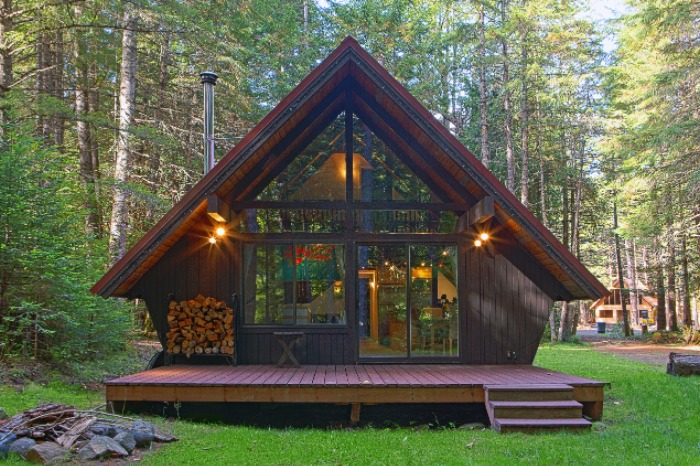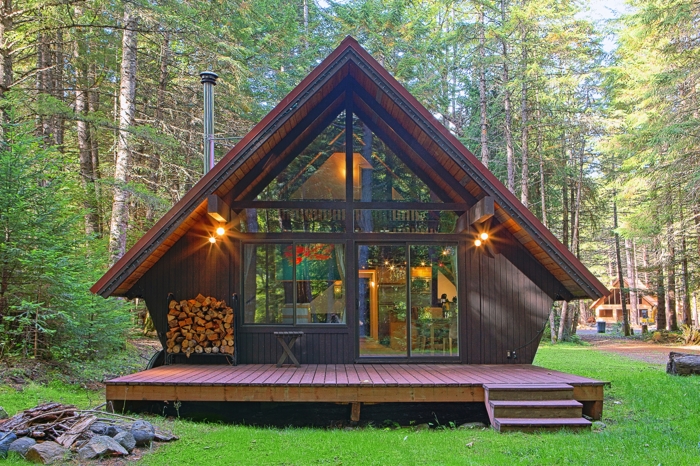The short-term rental business is a goldmine for property owners, but it’s not without risks. One question that keeps vacation rental hosts up at night is: Can someone squat in an Airbnb? The answer is yes, but it’s rare, and with the right strategies, you can prevent Airbnb squatters from turning your rental property into a nightmare. At 10XBNB, we’ve helped thousands of Airbnb hosts build bulletproof systems to protect their vacation rentals and maximize profits. This Airbnb Business page will break down everything you need to know about Airbnb squatters, how to handle guests who refuse to leave, and how to safeguard your short-term rental business.
What Are Airbnb Squatters?
Airbnb squatters are guests who overstay their booking, refuse to leave, and may even claim tenant rights to remain in your rental property. Unlike traditional squatters who occupy a vacant rental property, Airbnb squatters exploit short-term rentals, leveraging local tenancy laws or adverse possession laws to delay eviction. This is not a common issue, but it’s a growing concern for Airbnb hosts as the vacation rental market expands.
Why Do Guests Refuse to Leave?
Guests who refuse to leave often have ulterior motives. Some are sophisticated scam artists looking to exploit legal loopholes, while others may face personal crises, like financial hardship, and see your Airbnb property as a temporary refuge. Many Airbnb squatters are sophisticated scam artists who exploit local laws to their advantage. In rare cases, Airbnb guests may mistakenly believe they have tenant rights after staying for a certain period, especially in jurisdictions with lenient landlord-tenant laws.
Pro Tip: Always use vacation rental software to track booking details and monitor frequent reservation changes, which can be red flags for potential Airbnb squatters.
Can People Squat in Your Airbnb?
Yes, it’s possible for someone to squat in an Airbnb, but it’s not as simple as overstaying a booking. Squatters’ rights, or adverse possession, typically apply to long-term occupation of someone else’s property, often requiring years of continuous presence. However, in short-term rentals, the risk lies in guests who refuse to leave after their checkout date and attempt to claim tenant rights under local laws.
For example, in some U.S. states, staying in a property for as little as 30 days can trigger tenant protections, complicating the eviction process. This is why a rock-solid vacation rental contract is critical for Airbnb hosts. Without a clear rental agreement, you’re vulnerable to Airbnb squatter nightmares.
How Common Are Airbnb Squatters?
Airbnb squatters are rare but not unheard of. The Airbnb platform processes millions of bookings annually, and only a tiny fraction involve guests who refuse to leave. However, when it happens, it can cost property owners thousands in legal fees, court costs, and lost revenue. That’s why 10XBNB emphasizes proactive measures to prevent squatters, ensuring your short-term rental business stays profitable.
Can an Airbnb Host Kick Someone Out?
Airbnb hosts have the right to remove guests who violate house rules or overstay their booking, but you can’t just change the locks or physically remove them. Local laws dictate the eviction process, and acting impulsively can land you in legal trouble. Hosts should keep thorough documentation of all guest communications to support potential eviction processes. Here’s how to handle unwanted guests legally:
- Contact Airbnb Support: Report the issue immediately to document the situation and seek assistance. Mediation services may be available through Airbnb to help address disputes with guests.
- Review Your Vacation Rental Agreement: Ensure your rental agreement clearly states check-in and check-out dates, house rules, and consequences for overstaying.
- Notify the Guest in Writing: Formally request their departure to avoid legal complications, citing the rental agreement and local regulations.
- Involve Local Law Enforcement: If the guest refuses to leave, contact local law enforcement to assist with removal, but only if the guest has no legal claim to stay.
- Seek Legal Advice: Consult a lawyer familiar with landlord-tenant laws to initiate eviction proceedings if necessary.
Pro Tip: Always collect a security deposit to cover potential damages or actual expenses caused by overstaying guests. This can offset losses while you navigate legal procedures. Hosts can reduce chances of squatters by charging a security deposit.
What Happens When Airbnb Squatters Overstay?
When Airbnb guests refuse to leave, the situation can escalate quickly. Here’s what typically happens:
- Initial Conflict: The host notices the guest hasn’t vacated by the checkout date and attempts to resolve the issue directly.
- Legal Complications: If the guest claims tenant rights, the host must follow the eviction process, which can take weeks or months.
- Financial Losses: The host loses revenue from canceled bookings and may incur court costs or legal fees.
- Resolution: In most cases, Airbnb squatters are removed through legal action or negotiation, but the process can be draining.
To avoid this, vacation rental hosts should screen potential guests thoroughly. Check reviews, verify identities, and avoid accepting bookings from guests with frequent reservation changes or vague profiles. Hosts should only accept bookings from verified guests on Airbnb. Learn more about guest screening in our blog on protecting your Airbnb rental property.
Can an Airbnb Owner Walk In?
Airbnb hosts cannot walk into their rental property unannounced while it’s occupied by guests. Doing so violates guest privacy and Airbnb’s policies, potentially leading to penalties or account suspension. However, you can enter the property under specific circumstances outlined in your vacation rental contract, such as:
- Emergency repairs or safety issues.
- Guest consent for maintenance or inspections.
- Suspected illegal activity, like squatting, after notifying the guest.
Always document your reasons for entering and notify guests in advance unless it’s an emergency. This protects you from liability and maintains professionalism.
How to Prevent Airbnb Squatters
Preventing Airbnb squatters requires a proactive approach. Here are proven strategies to protect your vacation rental:
1. Craft a Bulletproof Vacation Rental Agreement
Your rental agreement is your first line of defense. Include clauses that:
- Specify check-in and check-out dates.
- Outline house rules and penalties for violations.
- Clarify that the booking does not create a lease agreement or tenant rights.
- Detail the process for handling overstays, including eviction proceedings. Hosts can strengthen their case for eviction by having guests sign a rental agreement before their stay.
- Specify check-in and check-out dates.
- Outline house rules and penalties for violations.
- Clarify that the booking does not create a lease agreement or tenant rights.
- Detail the process for handling overstays, including eviction proceedings.
2. Screen Potential Guests
Guest screening is non-negotiable. Use the Airbnb platform’s tools to verify identities, read reviews from other Airbnb hosts, and flag suspicious behavior. Hosts should read reviews written by other Airbnb hosts about a guest’s previous stays. Avoid guests with no reviews or those requesting frequent reservation changes.
3. Invest in Vacation Rental Insurance
Standard homeowner’s insurance doesn’t cover short-term rentals. Vacation rental insurance or squatter insurance can protect you from losses caused by Airbnb squatters, including legal fees and lost income. Proper Insurance provides coverage for loss of business income of up to $20,000 due to squatters and covers actual expenses of up to $10,000 incurred in dealing with Airbnb squatters. Proper Insurance offers a custom-written policy to help hosts deal with Airbnb squatters. Work with an insurance provider familiar with short-term rentals to find the right policy.
4. Enforce House Rules
Clear house rules deter unwanted guests. Specify expectations for check-out times, guest behavior, and consequences for overstaying. Display rules prominently in your listing and rental property.
5. Monitor Your Property
Use smart locks, security cameras (in common areas only), and vacation rental software to track guest activity. This helps you detect overstaying guests early and take action.
6. Understand Local Laws
Local tenancy laws vary widely. In some areas, guests staying beyond 30 days may gain tenant rights, requiring a formal eviction process. In many states, guests who stay for more than 30 days may acquire tenant status, even without a formal lease. Research rental laws in your area and consult a lawyer to ensure compliance.
Pro Tip: Join a community like 10XBNB to access expert advice, legal templates, and strategies for preventing Airbnb squatters. Our program equips short-term rental hosts with the tools to dominate the vacation rental market.
The Role of Squatters’ Rights in Airbnb Rentals
Squatters’ rights, or adverse possession laws, rarely apply to short-term rentals because they require long-term, continuous occupation. However, Airbnb squatters may exploit local tenancy laws to claim tenant rights, especially if they’ve stayed for an extended period. For example:
- In California, guests staying 30 days or more may be considered tenants, requiring a formal eviction process.
- In New York, similar laws can complicate removal of unwanted guests.
To counter this, ensure your vacation rental agreement explicitly states that bookings are short-term and do not establish a valid lease. This reduces the risk of guests claiming tenant rights.
The Cost of Dealing with Airbnb Squatters
Dealing with Airbnb squatters can be expensive. Property owners may face:
- Lost Revenue: Cancelled bookings due to an occupied rental property.
- Legal Fees: Court costs and attorney fees for eviction proceedings.
- Property Damage: Costs to repair damage caused by unwanted guests.
- Emotional Stress: The frustration of navigating an Airbnb squatter nightmare.
Keeping a comprehensive paper trail of documentation and communication is crucial during the eviction process.
Vacation rental insurance can mitigate some of these costs, but prevention is always better than reaction. Check out our blog on vacation rental insurance options for more insights.
Real-Life Airbnb Squatter Stories
While rare, Airbnb squatter cases do happen. In one high-profile case, a guest in California overstayed their booking, claimed tenant rights, and forced the host into a lengthy eviction process. The host lost months of bookings and incurred thousands in legal fees. Stories like this highlight the importance of guest screening, clear rental agreements, and understanding local regulations.
Why 10XBNB Is Your Solution
At 10XBNB, we’ve seen it all in the short-term rental game. Our proven system helps vacation rental owners prevent Airbnb squatters, optimize their listings, and 10X their profits. From crafting ironclad vacation rental contracts to mastering guest screening, we give you the tools to run a bulletproof short-term rental business. Don’t let the fear of Airbnb squatters hold you back—join 10XBNB today and take control of your rental property.
Final Thoughts on Preventing Airbnb Squatters
Airbnb squatters are a rare but real risk for short-term rental hosts. By understanding local laws, using a strong vacation rental agreement, screening potential guests, and investing in vacation rental insurance, you can protect your rental property and avoid the Airbnb squatter nightmare. With the right strategies, you’ll keep your short-term rental business thriving and your peace of mind intact.
Ready to dominate the vacation rental market? Sign up for 10XBNB and get access to expert strategies, legal templates, and a community of successful Airbnb hosts. Your rental property deserves the best—make it happen with 10XBNB.













